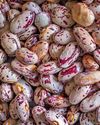Denemek ALTIN - Özgür
Sweet spot How the coating on our cells shaped humankind
The Guardian Weekly
|December 15, 2023
The sugar chains covering our cells have interacted over the ages with our environment and the diseases that plague us, influencing our evolution

According to the latest estimates, Covid-19 may be responsible for more than 18 million deaths worldwide. While infectious diseases like this have devastated humanity, it may be wrong to assume they are always antithetical to our survival and flourishing as a species. Otherwise, why would ancient pathogens such as malaria (of the falciparum type), cholera, typhoid, measles, and influenza A persist as human-only diseases - and why have we not evolved immunity to them? That is a question Professor Ajit and Nissi Varki (a husband and wife team) and colleagues at their lab at the University of California, San Diego, have been asking for several decades. The answer, they believe, lies in the complex array of sugar chains called glycans that decorate the surfaces of cells, and the sugar molecules known as sialic acids that cap most of these chains. These terminal sugar chains are involved in everything from the regulation of immune responses to adaptations that may have played a key role in human evolution, such as the ability of our early hominin ancestors to run for longer without becoming fatigued advantage when pursuing prey.
Ajit Varki first became interested in sialic acids and glycobiology in the early 1980s, when he was treating a patient who had suffered an adverse immune response to a therapeutic horse serum used to treat a type of anemia. Rather than the immune response being directed against the presence of foreign proteins - then the standard explanation in biology textbooks - Varki discovered it was because of the sialic acids on the horse proteins, which was surprising as every vertebrate, including humans, can make sialic acids.
Bu hikaye The Guardian Weekly dergisinin December 15, 2023 baskısından alınmıştır.
Binlerce özenle seçilmiş premium hikayeye ve 9.000'den fazla dergi ve gazeteye erişmek için Magzter GOLD'a abone olun.
Zaten abone misiniz? Oturum aç
The Guardian Weekly'den DAHA FAZLA HİKAYE

The Guardian Weekly
All things must pass
After a decade, Stranger Things is bowing out with an epic final season. Its creators and stars talk about big 80s hair, recruiting a Terminator killer-and the gift that Kate Bush sent them
7 mins
November 21, 2025

The Guardian Weekly
N344
Oyster mushroom skewers
1 min
November 21, 2025
The Guardian Weekly
Our lunch guests are always prompt... so where are they?
My wife and I are having people to lunch - another couple; old friends. It’s supposed to be an informal affair, but it’s been a long time in the planning because, unlike us, our guests are busy people, and hard to nail down.
2 mins
November 21, 2025
The Guardian Weekly
Vanity fair
This debut is a brilliant, chronically funny satire of the modern literary scene
1 mins
November 21, 2025
The Guardian Weekly
A strange miracle
A dreamlike novel from the Norwegian master's latest voyage into 'mystical realism'
3 mins
November 21, 2025

The Guardian Weekly
I'm vegetarian, he's a carnivore: what can I cook that we'll both like?
I'm a lifelong vegetarian, but my boyfriend is a dedicated carnivore. How can I cook to please us both? Victoria, by email
2 mins
November 21, 2025
The Guardian Weekly
Anthony Hopkins' autobiography mixes vulnerability with bloody mindedness
It's the greatest entrance in movie history and he doesn't move a muscle.
2 mins
November 21, 2025

The Guardian Weekly
The single mothers teaming up to raise kids
As divorce rates rise and the cost of living bites, single mothers in China are searching for a new kind of partner: each other.
3 mins
November 21, 2025
The Guardian Weekly
His master's voice
Anthony Hopkins' autobiography mixes vulnerability with bloody mindedness
2 mins
November 21, 2025

The Guardian Weekly
Oil the wheels Orbán claims a US victory - but is his grip slipping?
As Viktor Orbán would tell it, he had the perfect meeting with Donald Trump.
2 mins
November 21, 2025
Translate
Change font size

